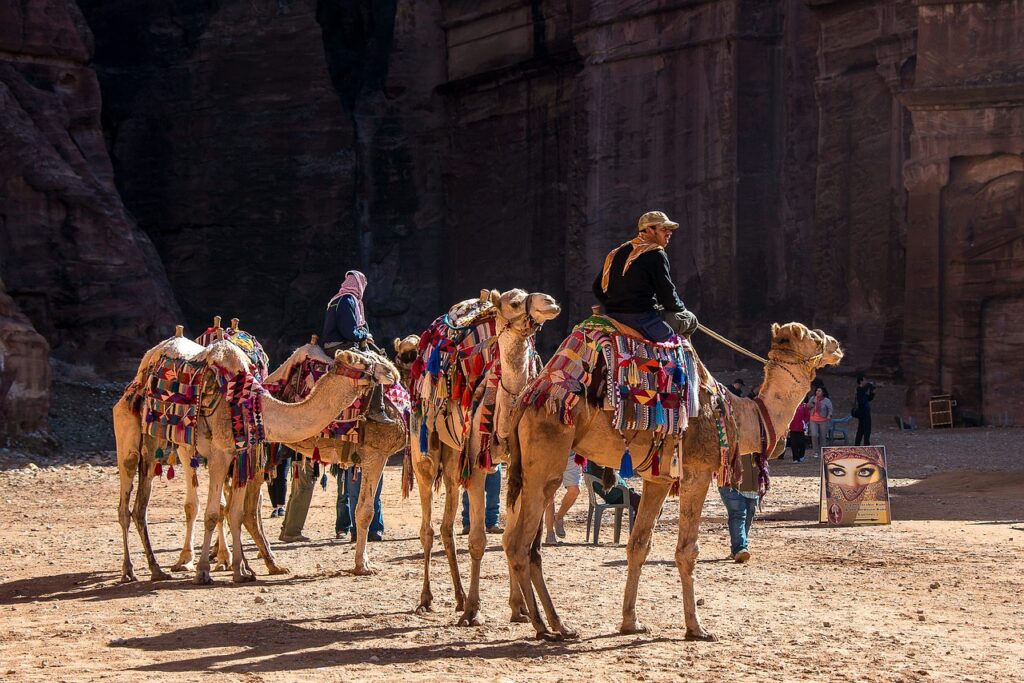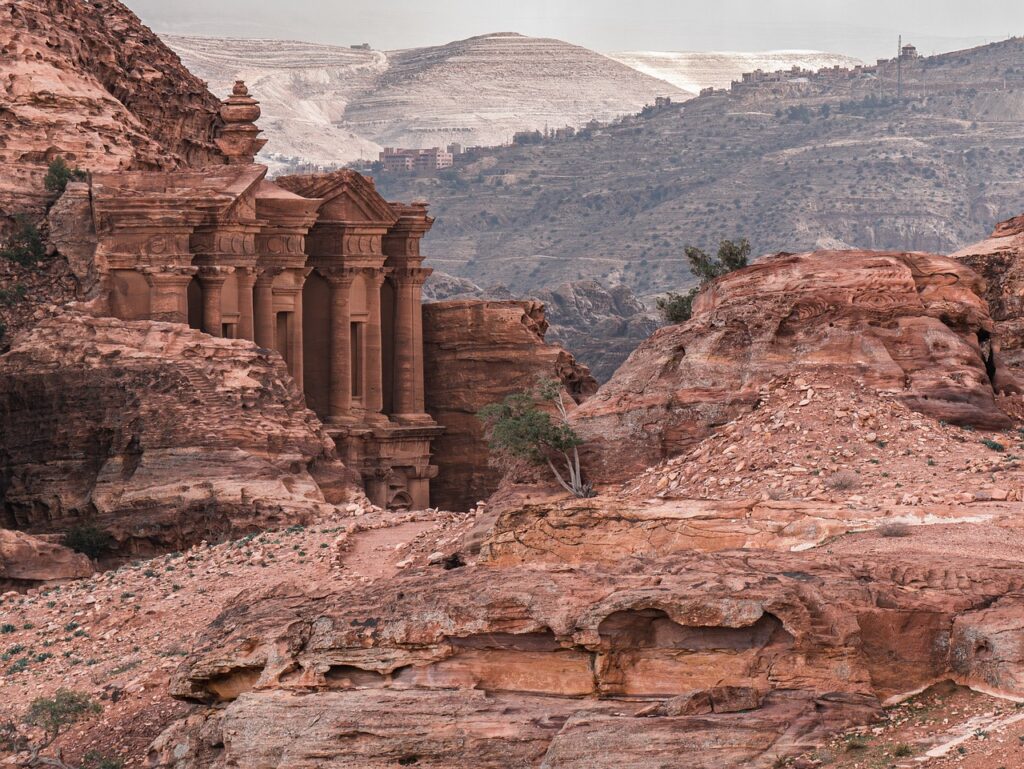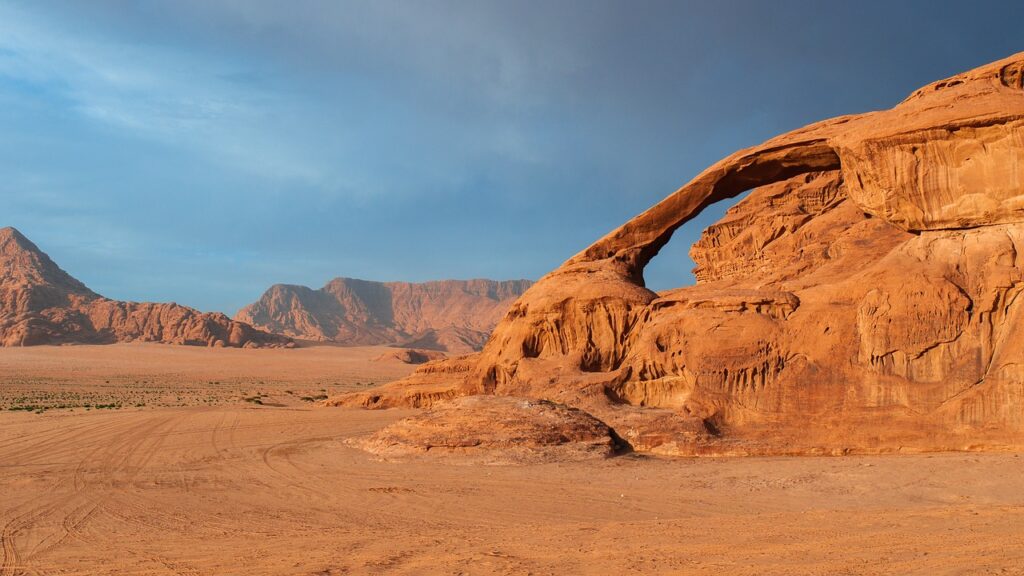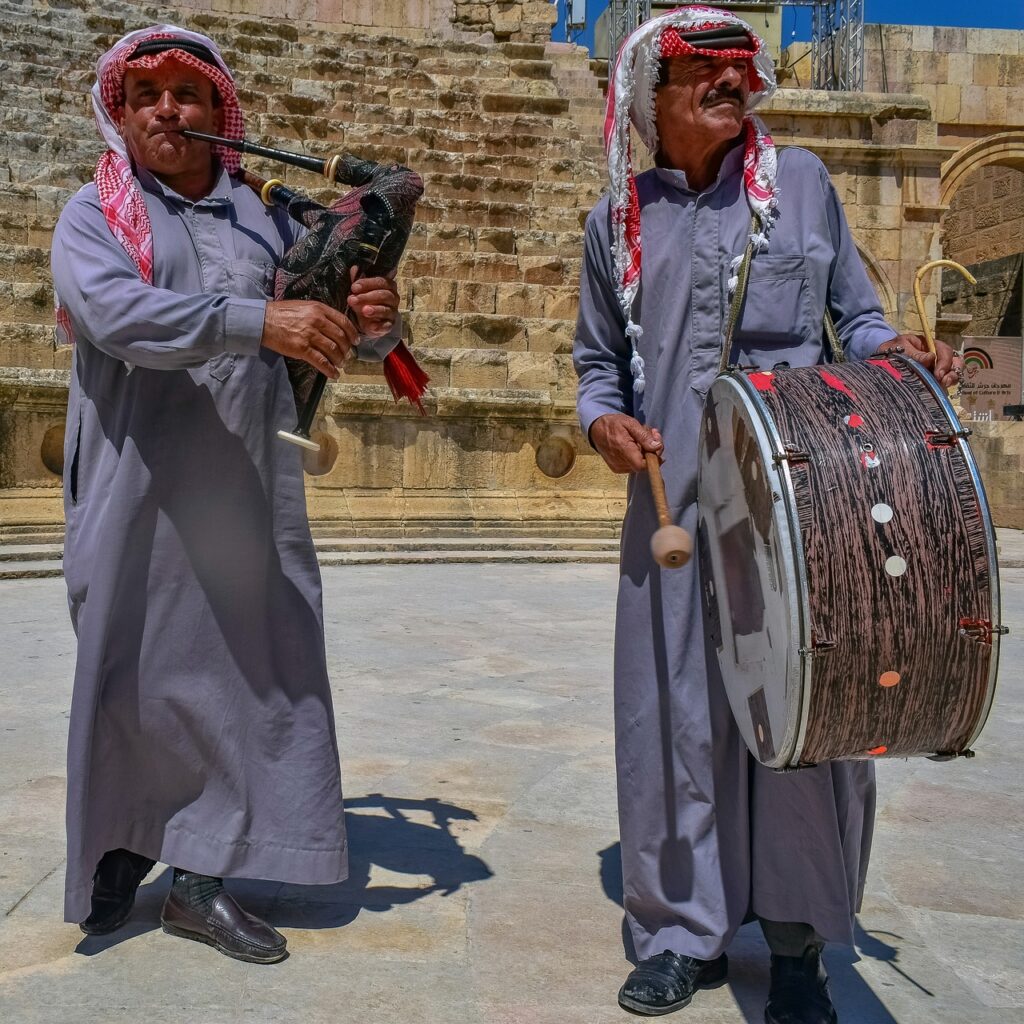Jordan's fascination with Arab cultural heritage

Photo: Pixabay
By: Eman El-Ajlouni / Arab America Contributing Writer
Jordan is located at the meeting point of several historical civilizations, it’s a captivating example of how people continue to be with their Arab cultural history. This country’s history extends thousands of years, during which several empires rose and fell, leaving behind an array of cultural riches that still fascinates the world. Jordan’s admiration for its cultural past is evident in all aspects of its identity, from the magnificent Petra ruins to the vibrant customs of its people. In this investigation, we dig into the captivating attraction of Jordan’s Arab history, where timeless beauties and vibrant traditions mix to offer visitors and cultural enhancements both a rich and fascinating experience.
Petra: The Rose-Red City
Petra, the famed “Rose City” and a UNESCO World history Site, is one of the seven wonders of the world and cannot be discussed without bringing up Jordan’s cultural history. This wonder is a monument to the creativity and architectural genius of ancient Arab civilizations, carved into the sandstone cliffs by the diligent Nabataeans more than two thousand years ago. Visitors are in amazement of the known Treasury’s beautiful architecture and historical importance as they approach it through the cramped Siq. Travelers come to see spectacular outdoor arenas, temples, and tombs as they explore the old city, all of which evoke the glory of the past.

Photo: Pixabay
Wadi Rum: The Valley of the moon
Travelers are in amazement of the stunning elegance of Jordan’s Wadi Rum, a mesmerizing desert marvel. The “Valley of the Moon” is home to towering sandstone mountains, expansive sand dunes, and bizarre rock formations, producing an alien scene that makes you feel as though you’ve entered another planet. The rocks’ vivid colors give the landscape an otherworldly appeal, especially at daybreak and dusk. Wadi Rum is a special and remarkable location for anyone wanting a look into Jordan’s captivating wildness and rich history since, in addition to its natural beauty, it gives a chance to experience Bedouin culture and hospitality.

Photo: Pixabay
Ancient Roman Ruins
The well-preserved ruins of Jerash show that Jordan’s cultural past continues beyond the Nabataeans to the Roman era. As the “Pompeii of the East,” Jerash contains a stunning collection of Roman buildings, including temples, theaters, and colonnaded avenues. The historic city is a must-visit location for those interested in history because when visitors walk around it, they virtually sense the echoes of a bygone period.
Preserving the past via historical treasures
With numerous archaeological monuments and medieval ruins dotting its landscape, Jordan’s cultural heritage is a historical wonder. Every site provides a window into the various cultures that have shaped Jordan’s identity over the ages, from the well-preserved Roman city of Jerash with its imposing colonnades and well-preserved amphitheater to the Umayyad desert castles decorated with outstanding mosaics and detailed Islamic art. Generations to follow will continue to learn from the legacies of the past thanks to the nation’s dedication to the conservation of these historical treasures.
Bedouin hospitality and traditions
Jordan’s cultural history is enhanced by the traditions of its Bedouin people in addition to its ancient wonders. Evidently, the Bedouin people live a manner of life rooted in the soil by travel through the desert for decades. Their unusual hospitality, demonstrated in the serving of sweet tea to visitors, their traditional clothes, and their compelling narratives, offers a true view into the time-honored Bedouin culture that has endured for decades.
Spiritual Significance: Custodians of Holy Sites
Jordan, a land of historical and religious significance, boasts several Islamic holy sites that hold deep spiritual importance for Muslims. Among these sacred locations is the Baptism Site “Bethany Beyond the Jordan“, where Prophet John the Baptist baptizes Prophet Jesus. This site draws countless Christian pilgrims seeking to connect with their faith and commemorate this pivotal event. Another cherished site is Mount Nebo, where Prophet Moses viewed the Promised Land before his passing, making it a place of reflection and reverence for Muslims worldwide.
The Cave of the Seven Sleepers, known as Ashab al-Kahf, is also revered, as it holds the tale of seven young men who sought refuge from persecution and miraculously preserved in slumber for centuries. Additionally, Maqam Al-Nabi Shu’ayb, the tomb of Prophet Shu’ayb, offers a site for spiritual contemplation and devotion for believers. Islamic holy sites in Jordan serve as places of pilgrimage, drawing visitors from diverse backgrounds to immerse themselves in sacred history and spirituality.
Culinary Heritage
Undoubtedly, no exploration of Jordan’s cultural heritage is complete without savoring its delectable cuisine. Jordanian cuisines like falafel, mezze, and mansaf, reflect the country’s rich culinary legacy for tourists. These meals were influenced by the country’s Bedouin, Arabian, and Levantine traditions.
Living Traditions and Cultural Festivals
Throughout the year, Jordan comes alive with a myriad of cultural festivals and events that celebrate its Arab heritage. From music and dance festivals to traditional crafts and culinary showcases, these gatherings offer a vibrant expression of Jordanian identity. For example, The Jerash Festival of Culture and Arts, brings together artists from around the world to share their talents. Wheras, the Amman Baladk Festival highlights local crafts, music, and cuisine, fostering a sense of pride and unity among Jordanians.

Photo: Pixabay
Conclusion
To summarize, Jordan’s fascination with its Arab cultural heritage is a captivating journey through time, where ancient wonders, living traditions, and artistic expressions merge to form a vibrant tapestry of history and identity. As Jordan cherishes its past, it invites the world to share its enduring appreciation for Arab heritage that inspires the nation’s vibrant and welcoming spirit. Whether exploring the ancient marvels of Petra or engaging in the warmth of Bedouin hospitality, every step in Jordan reveals the beauty and richness of a civilization that stands as a bridge between the past and the present.
Check out Arab America’s blog here!








